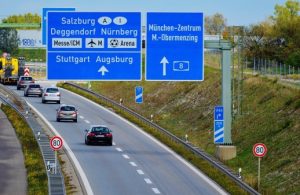Two in five British drivers in Europe suffer problems on the road
Drivers heading to Europe are being urged to prepare for their trip and research country-specific driving requirements before hitting the road.

Drivers are being urged to ensure their vehicles are prepped and they have the right documentation before driving in Europe
According to new research by RAC European Breakdown, two in five (42%) drivers in Europe suffer problems on the road. Of those over one in 10 (13%) of drivers says they have driven on the wrong side of the road while a fifth (22%) have become confused by roadside signage.
And 7% have struggled to find the right money for toll booths or work out how to use the machine.
Further European driving troubles include having an encounter with a local policeman (6%), having been stopped for a motoring offence whereas a smaller percentage (5%) said they have been caught driving too fast by a speed camera. Around 4% were found to have been involved in an accident – the same percentage as those who said they had driven the wrong way around a roundabout – and 3% revealed they had been the victim of a road rage incident at the hands of an irate local driver.
The RAC European Breakdown research also revealed a high level of confusion around the phone number to dial in the EU for emergency assistance, with only 30% knowing the number to call was 112 – in 2015 the figure was 38%. Of the remainder 50% admitted simply to not knowing the number and a combination of others who thought it was the UK non-emergency health number 111 (11%), the US emergency number 911 (5%) or the police non-emergency line 101 (3%).
The RAC research backs up recent analysis by Alphabet that found 83% of drivers admit they are scared of breaking down in a country where they can’t speak the language and over half consider themselves nervous while driving abroad.
In response the business mobility specialist, Alphabet urges holiday-makers to thoroughly check their company cars and country-specific driving requirements before hitting the road to avoid substantial driving fines.
This includes packing driving licence, motor insurance certification and vehicle registration documents – such as a V5 form or a VE103 for a leased vehicle; making sure that any compulsory kit is packed, for example drivers in France must carry an approved breathalyser self-test kit; and ensuring the vehicle has been prepared, for example with a GB sticker.












